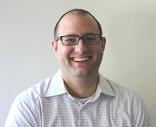[Opinion] Groups message emboldens enemies, delegitimizes Israel

 Click here to read the original article
Click here to read the original article
The Israeli nongovernmental organization Breaking the Silence is in its second month of an international advocacy tour to France, Canada, the United Nations and the United States, including five appearances this week in the Bay Area. A central purpose is to promote its book, “Our Harsh Logic,” which has already been translated into English, Swedish, German, French and Dutch.
Breaking the Silence, an NGO that collects what it calls testimonies from Israeli soldiers, gained notoriety in Israel for its allegations of “war crimes” and “violations of international law” committed by Israeli armed forces. The primary message given to foreign audiences is, in the words of one member, “We are the oppressors … We are creating the terror against us, basically.”
The numerous appearances outside of Israel are a significant investment of resources and funds for Breaking the Silence. But this begs a number of questions: Who funds the trips? Is this tour of any value? Who benefits from the frequent appearances before audiences outside of Israel? Who responds when their claims are false?
Governments such as the European Union, Spain and Norway and foundations such as the New Israel Fund support Breaking the Silence’s mission: “to expose the Israeli public to the routine situations of everyday life in the Occupied Territories … pushing Israeli society to face the reality whose creation it has enabled.” Certainly, then, Breaking the Silence donors are not getting their money’s worth, as this mission cannot be fulfilled on American college campuses and in the propaganda forum known as the U.N. Committee on the Exercise of the Inalienable Rights of the Palestinian People.
And what about audiences, who hear about a book full of “testimonies” from Israeli soldiers purporting to show that Israeli self-defense measures are pretexts for “terrorizing” Palestinians? They, too, are being misinformed.
NGO Monitor’s detailed analysis of the book shows that Breaking the Silence tailored the anecdotal and unverifiable accounts of low-ranking soldiers to fit a predetermined conclusion that Israeli policy is the “intimidation, instilling of fear, and indiscriminate punishment of the Palestinian population.” In fact, many testimonies contradict this harsh claim, explicitly noting that incidents of individual misconduct were opposed and punished by officers.
Audiences, then, are hearing personal political perspectives on the Arab-Israeli conflict, and not the unfiltered words of ordinary Israelis.
Breaking the Silence also has contributed to polarization on college campuses. At U.C. Berkeley, the Jewish Student Union denied membership to J Street U, in part because it hosted an appearance by Breaking the Silence representatives. As noted by a Jewish student leader at Berkeley, “the effect of bringing a public event like [Breaking the Silence] is detrimental to the image of Israel on our campus.”
There are, however, two groups that benefit from the international tours.
The first is Breaking the Silence itself, whose leaders and members are frustrated by their marginal role in the Israeli democratic debate. In contrast, they find receptive audiences in European capitals, U.N. forums and college campuses. Instead of the difficult task of addressing Israelis who usually have firsthand experience with the Israeli army, Breaking the Silence can “convince” audiences with no understanding of day-to-day Israeli realities. So instead of being ignored, they are the center of attention.
The second and more disturbing winners are the pro-Palestinian propagandists who use Breaking the Silence to support their demonization of Israel and of the legitimacy of Jewish sovereign equality.
These include the virulently anti-Israel U.N. Committee on the Exercise of the Inalienable Rights of the Palestinian People, mentioned earlier, which hosted a “special event” with Breaking the Silence on Oct. 21 as part of its wider campaign. Or the Iranian regime’s Press TV, which broadcast excerpts from the Breaking the Silence presentation.
There is also the Palestinian deputy representative to the U.N., who reportedly urged Breaking the Silence “to do more speaking engagements, particularly in the United States.” And diplomats from the United Arab Emirates and Pakistan, neither of which recognizes Israel, attended a Breaking the Silence session in 2011.
In a similar vein, Jewish Voice for Peace, which promotes boycott, divestment and sanctions, and which seeks to drive a wedge within the American Jewish community over support for Israel, is co-sponsoring a Breaking the Silence event at Kehilla Community Synagogue in Piedmont on Saturday, Nov. 23.
The problems here are not only the venues, but also the message. As an Israeli organization, Breaking the Silence can choose to foment international pressure on Israel by associating with leaders of the demonization movement.
If Breaking the Silence and those who support it do not want to be seen as hypocritical, they should be honest about the complexities facing the Israeli army and end their international demonization campaign.
